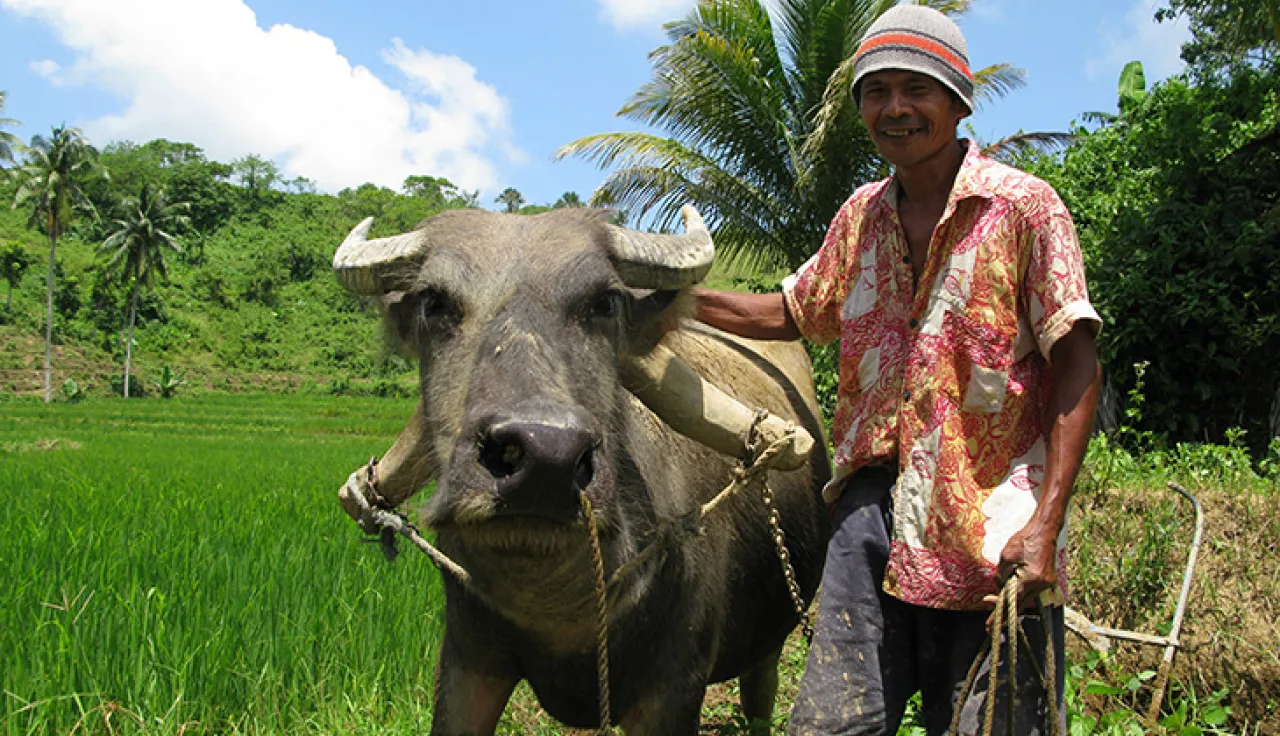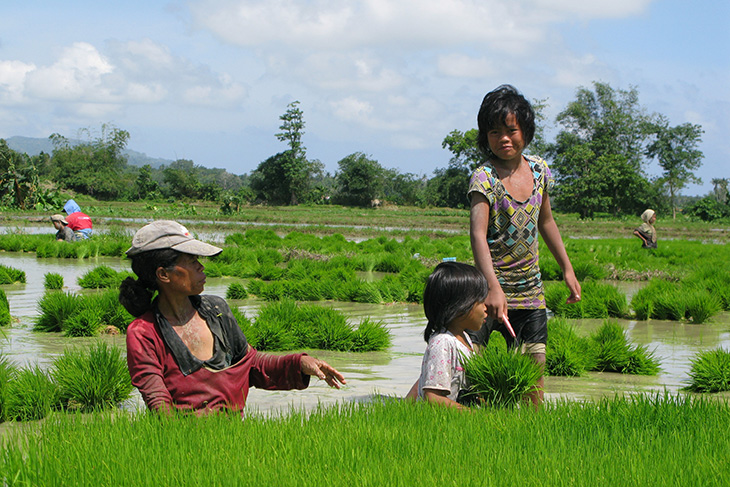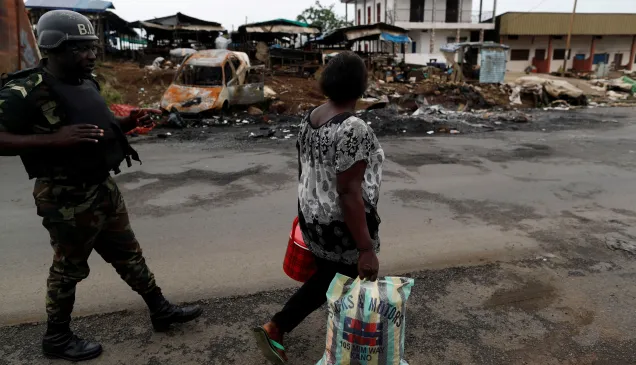Philippines: Sustaining livelihoods of farmers in Negros

Most Filipino farmers consider carabaos (water buffalos) as faithful partners in life. In remote communities in which conventional farming is commonly practiced, farmers mainly rely on a carabao's hard work and patience to get the job done.
Delilah is a 3-year-old female carabao who has been helping Joelito plough his farm for more than a year now. "When the Red Cross gave us Delilah, I was very thankful. I never thought I could own a carabao as I could not afford to buy one with my limited income", recalls Joelito, a 53 years old rice farmer.
In 2014, to help improve the livelihoods of farmers and boost production in Nabulao and Camindangan – small farming villages in Sipalay City, in the south of Negros Occidental – the ICRC provided farm inputs such as carabaos, hand tools, vegetable seeds, farm machines, as well as trainings. In these areas, beside difficult living conditions, communities also have to deal with the effects of sporadic armed violence.

For those relying on rain-fed farming in Sipalay, the rainy season means one thing - planting has begun. Rice farmers can be seen in the fields with other members of the family helping out. CC BY-NC-ND / ICRC / Von Gustilo
For Joelito's rain-fed type of farming, catching up with the rainy season is highly critical. For small farmers like him, even renting a carabao is a rather expensive waiting game. And the unavailability of a carabao can delay planting and result in low production. "Timing is the key," he explains.
With Delilah, Joelito has been able to plant on time, while the money that has been saved goes to other essential needs. "I can start saving money for the education of our children. I am hopeful that I can send at least one of my children to college."
Delilah also helps Joelito to expand and utilize the hilly portion of the land not suitable for rice farming as a vegetable garden. "My family grows peanuts and mung beans while waiting for the harvest season," explains Joelito. "The vegetable garden provides us with an additional source of income to support the needs of our five children, considering that three of them are enrolled in school."
As part of the strategy to sustain their livelihoods, farmers have agreed to share newly bred carabaos. Joelito will allow Delilah to breed after the next planting season (when she will be less needed).
Story by Von Gustilo, ICRC field officer



